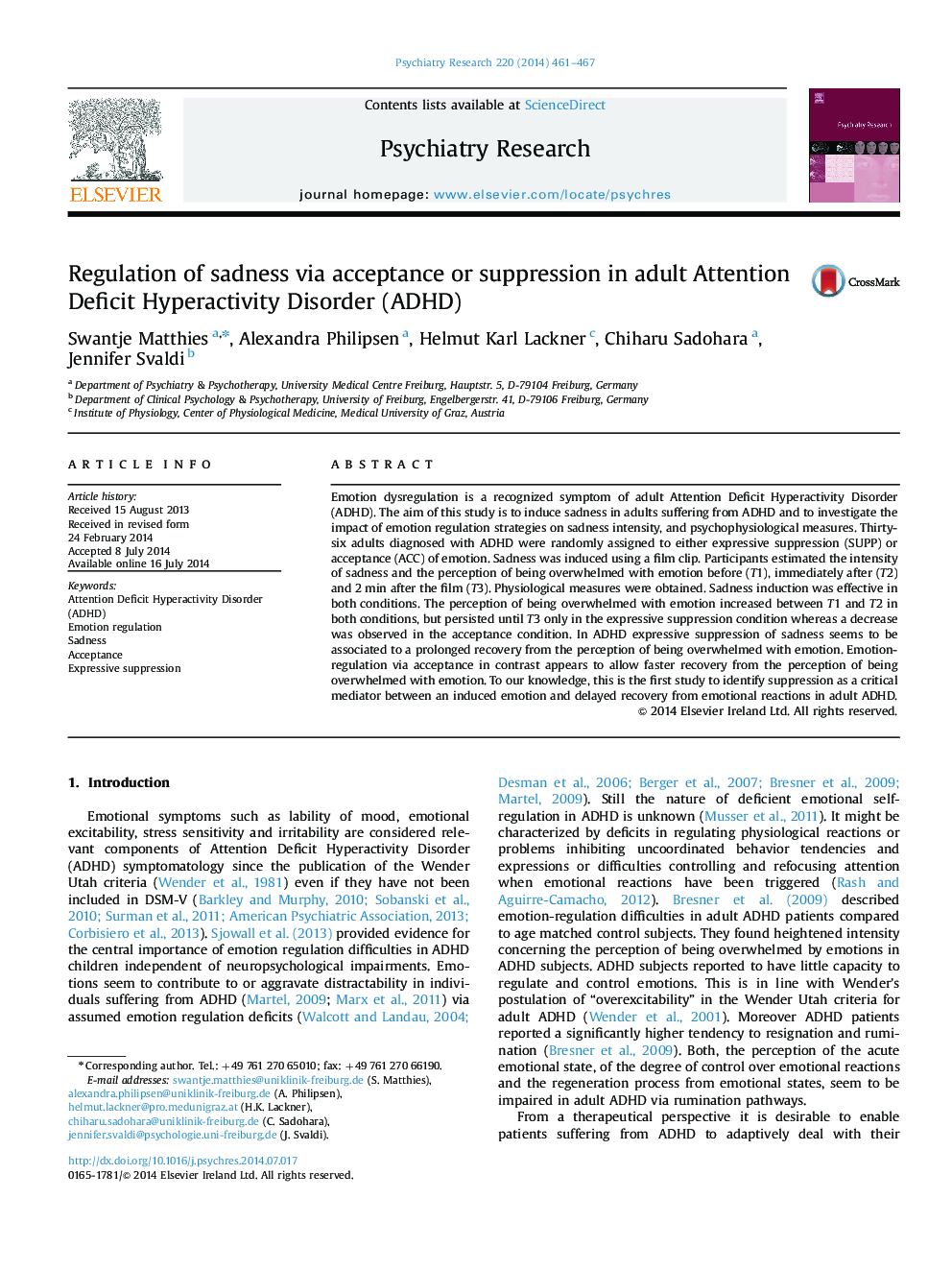| Article ID | Journal | Published Year | Pages | File Type |
|---|---|---|---|---|
| 6814987 | Psychiatry Research | 2014 | 7 Pages |
Abstract
Emotion dysregulation is a recognized symptom of adult Attention Deficit Hyperactivity Disorder (ADHD). The aim of this study is to induce sadness in adults suffering from ADHD and to investigate the impact of emotion regulation strategies on sadness intensity, and psychophysiological measures. Thirty-six adults diagnosed with ADHD were randomly assigned to either expressive suppression (SUPP) or acceptance (ACC) of emotion. Sadness was induced using a film clip. Participants estimated the intensity of sadness and the perception of being overwhelmed with emotion before (T1), immediately after (T2) and 2Â min after the film (T3). Physiological measures were obtained. Sadness induction was effective in both conditions. The perception of being overwhelmed with emotion increased between T1 and T2 in both conditions, but persisted until T3 only in the expressive suppression condition whereas a decrease was observed in the acceptance condition. In ADHD expressive suppression of sadness seems to be associated to a prolonged recovery from the perception of being overwhelmed with emotion. Emotion-regulation via acceptance in contrast appears to allow faster recovery from the perception of being overwhelmed with emotion. To our knowledge, this is the first study to identify suppression as a critical mediator between an induced emotion and delayed recovery from emotional reactions in adult ADHD.
Keywords
Related Topics
Life Sciences
Neuroscience
Biological Psychiatry
Authors
Swantje Matthies, Alexandra Philipsen, Helmut Karl Lackner, Chiharu Sadohara, Jennifer Svaldi,
